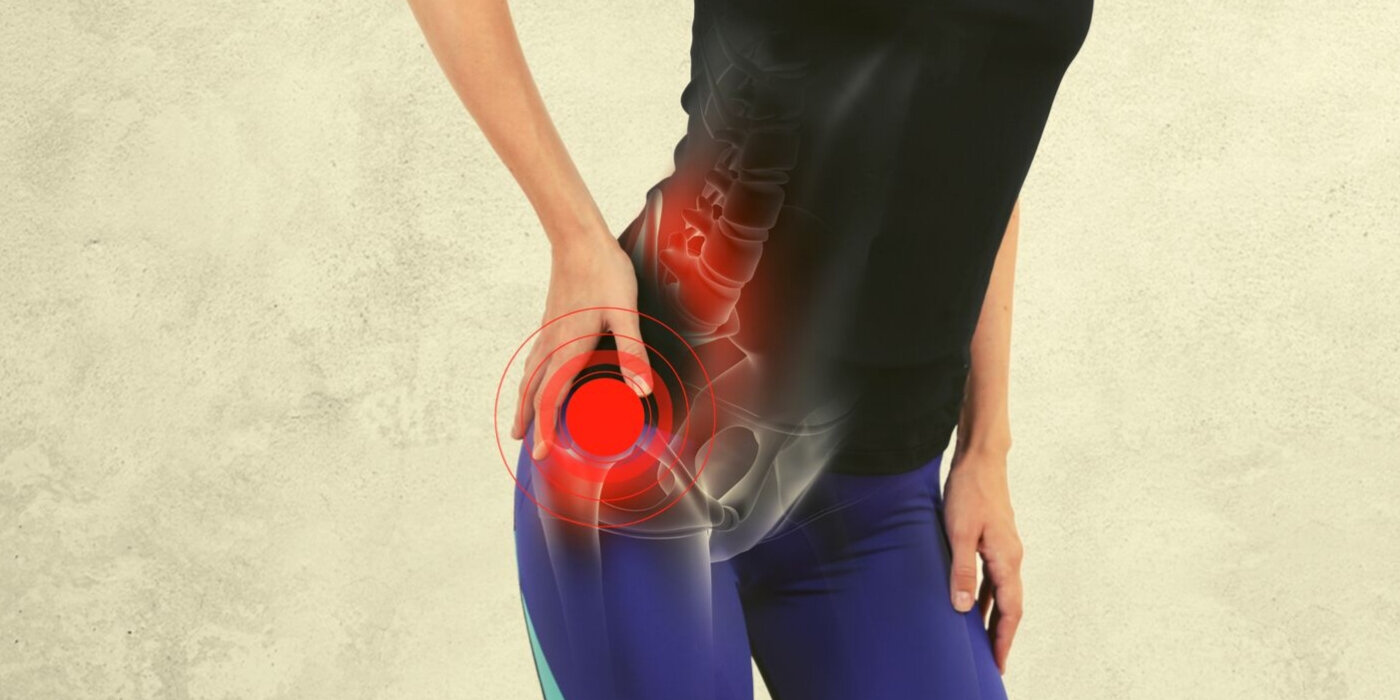Hip Pain
What Causes Hip Pain?
Hip pain can happen suddenly or slowly over time and at The Physiotherapy Place we treat hip pain in people of all ages. It can impact heavily on our day to day function and quality of life, interfering with sport, exercise, work and daily activities. Hip pain can be caused by:
wear and tear (osteoarthritis)
fractures
ligament tears
pulled muscles
inflamed tendons
Location of Pain
A hip injury can cause pain in your hip, thigh, groin, back or buttock. Similarly, pain you feel in the hip area is not necessarily coming from your hip - it may be caused by a problem in your lower back or the sacroiliac joint in the pelvis. The area of the pain gives a good hint at the structure that is causing the pain but it by no means confirms it. For instance pain in the buttock might be from a muscle tear in the area or could also be referred pain from the lower back.
Cause of Injury
The cause of injury also gives us a clue as to the likely structure that is causing the problem. For example pain on the outside of the hip caused by an increase in running training might suggest trochanteric bursitis (runners hip), whereas pain shooting into the buttock after sitting for a long time might point towards a referred pain or pinched nerve coming from the lower back.
Hip Pain That Isn’t Going Away
When hip pain doesn't resolve, it generally means that something is continuing to be irritated which is preventing healing from happening. If this is the case, a detailed assessment of the hips, pelvis, spine and corresponding muscles and nerves should be done to figure out what is causing this. Imaging such as an MRI scan or x-ray may help to shed light on any damaged structures that might be contributing to the pain.
Chronic pain in the buttock is often wrongly attributed to a hip problem. In fact it is most often referred pain coming from the lower back. The main nerve that comes out from the lower back (sciatic nerve) goes into the buttock and supplies the muscles there, so an irritation or stiffness in the back can commonly give people a dull, tight, sensitive feeling in the buttock that just doesn't go away. In many cases of long-term hip pain, recognising this and treating the lower back and sciatic nerve usually gets the problem solved reasonably quickly.
I Have Hip Pain Lying On My Side At Night
Hypersensitivity of the bone on the outside of the hip when lying on that side is a common complaint often becoming more prominent in bed at night which can disturb your sleep. The primary suspects for this type of pain are the bursa or the tendons of the gluteal muscles that attach onto the bone on the outside of the hip. If these are overly taught then they can become inflamed and can be very tender when putting pressure on that side.
Is Walking Good For Hip Pain?
This depends very much on the specific injury. Generally speaking, if you can walk without pain then yes it is good for you. The key with all exercise is to try to stop before the onset of pain so as not to aggravate the injury. For some types of hip issue such as osteoarthritis, a lower impact form of exercise such as cycling or swimming might be more comfortable.
What Will A Physio Do?
All of these conditions can effectively be treated with different physiotherapy techniques such as manipulation, soft tissue release, or dry needling. The key is identifying what is actually causing your pain so assessing the whole of the lower back, hip and pelvis is essential. The exact cause, type and location of the pain is always unique to each individual, which means there is no single ‘fix’ for all hip pain. Once the cause has been established and treatment has begun on all of the contributing areas, relief from your pain is a steady process.
You can find our top tips for what you can do for hip pain in our free e-book here.

